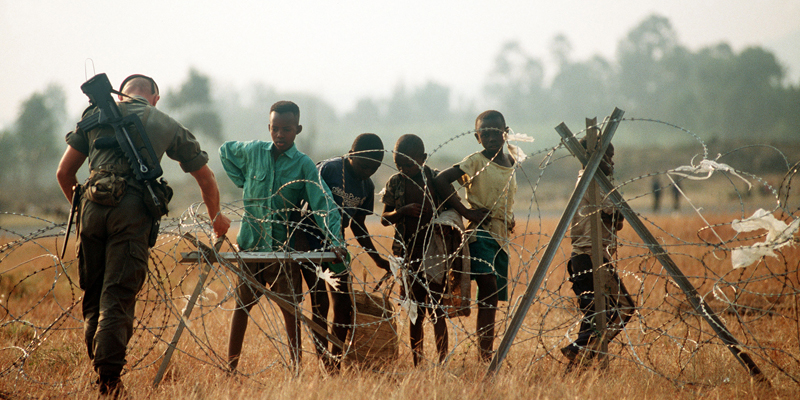(4 minutes read)
· The French –Rwanda bilateral relations are poised to take a new and positive turn after the visit of French President Macron to Kigali, which both administrations hailed as historic. One has to go beyond the veil of niceties to understand the underpinnings of new overtures
· It has diplomatic, social and more importantly business content and connotation, while Rwandan strong man Paul Kagame and Macron signed a joint declaration of intent aimed at development aid, France will commit Euro 500 million over the 2019-23 period
· Macron did his best to assuage the feelings of the Rwandans when he almost apologized to the atrocities let loose by the then French Administration leading killings of several thousand people which remains as a blur in the human history named as the 1994 Tutsi Genocide
The French –Rwanda bilateral relations are poised to take a new and positive turn after the visit of French President Macron to Kigali, which both administrations hailed as historic. One has to go beyond the veil of niceties to understand the underpinnings of new overtures. It has diplomatic, social and more importantly business content and connotation, while Rwandan strong man Paul Kagame and Macron signed a joint declaration of intent aimed at development aid, France will commit Euro 500 million over the 2019-23 period.
The French President also used this opportunity to detail the strengthening of relations with Rwanda, with the signing of a joint declaration of intent, aimed at social and economic development of its ex-colony. These allocations are mainly targeted at healthcare, digital and Francophonie, a euphemism for people who use French in
their work and trade. Besides, France is about to appoint an ambassador to Rwanda to take the diplomatic relations to the next level. That is coming after long six years and in every sense a milestone since it can buttress the animosity between the two countries since the genocide in 1994.
Macron did his best to assuage the feelings of the Rwandans when he almost apologized to the atrocities let loose by the then French Administration leading killings of several thousand people which remains as a blur in the human history named as the 1994 Tutsi Genocide. His admission that France unknowingly had a role in one of the worst killings in human history is good enough to send the right vibes to the Rwandans, who are also keen to revive the relations mostly because of economic reasons.
Yet, there are people who can hark back the gory scenes of 1994 insisting that nothing short of an unqualified apology should mend the relations. Paul Kagame maintains that the admission of the French complicity in the genocide would resonate across the world. Undeniably, both parties have their own calculations. While Rwandans are wanting to bury the past for a better future in terms of more aid and investments from France in particular and the EU in general, Macron’s policy to build bridges not only with Rwanda but also with African countries reflects its commitment to drive its economic agenda.
Of late, French investments and other business interests in Africa has gone up substantially. With a population of 1.30 billion people, a growing continent economically and accounting for more than 30% of the global mineral resources including some of the rare earths, no one can ignore the contyinet. Macron knows that much more than anyone
elese.





